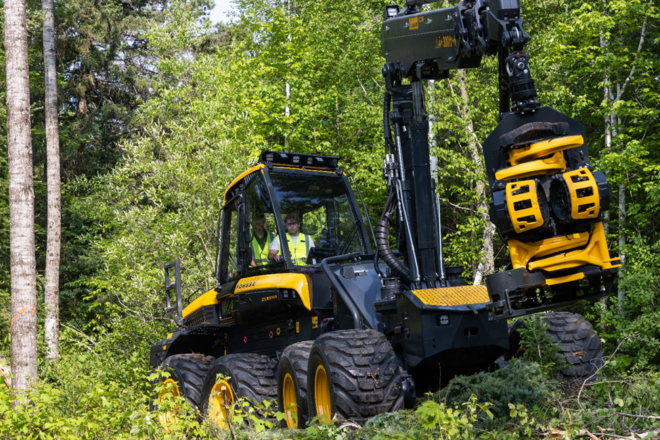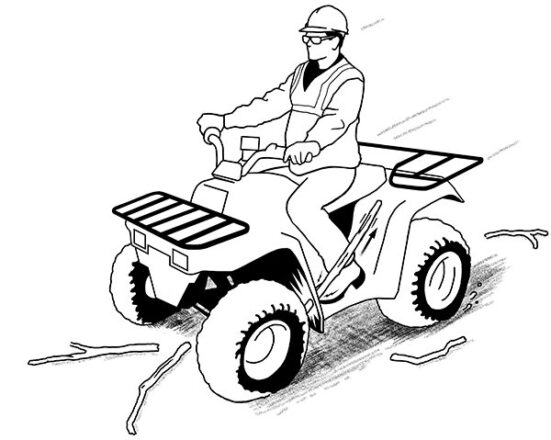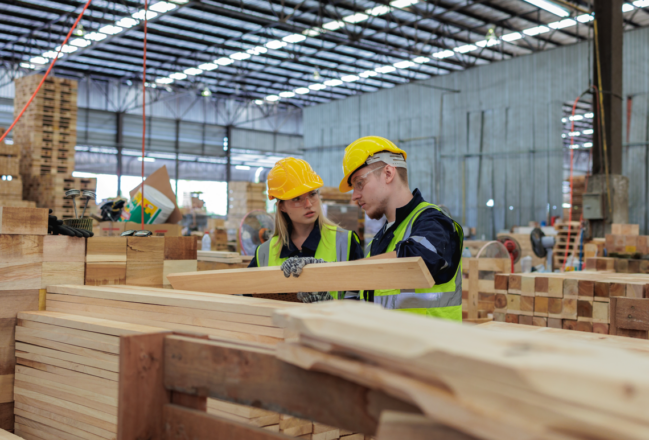Comprehensive Innovation for the Forests of Tomorrow

The University of Minnesota’s Natural Resources Research Institute (NRRI) is the state’s applied research lab. The mission is focused on delivery of comprehensive research solutions that balance our economy, resources and environment to support resilient communities. Our job is to work with all stakeholders, partners and tribal governments to identify gaps in our knowledge and capabilities. We then frame research to best make use of our forest, mineral and water resources while protecting and conserving. Working with partners, we develop innovative solutions and tools to move forward. A comprehensive approach is imperative. We build cross-functional teams of scientists, engineers and assets from across the Institute and beyond to get the job done.
This past September, NRRI had the opportunity to host over 70 members of FRA at our Duluth facility. We enjoyed the opportunity to introduce NRRI’s role in forest resources and to discuss programs focused on forest health and productivity, industry renewal and associated forest benefits. The visit sparked discussions and comments that have enriched our work.
Balancing natural resource utilization, conservation and remediation and the continuing needs for materials and jobs is a complex and ever-changing challenge. Society depends heavily upon forest ecosystem services that it sometimes takes for granted — forest health and productivity, clean water, wildlife habitat and biodiversity, quality of life and recreation. More than half of American cities depend upon forests in some way for their clean drinking water supplies. At the same time, the materials and building industries are faced with competitive scenarios for access to quality forest resources for both incumbent and emerging opportunities. The energy sector continues to seek a portfolio of renewable energy assets which engages the same resources.
Today’s forest resources face a wide variety of stressors that impact industry practices and forest management decisions. Added to that are increasing environmental and social stressors. This adds up to a bewildering set of competing pressures and priorities facing our forests and our forest industries. There are no simple answers, no silver bullets – instead, there is the need to drive sustained, long-term support for applied research targeting delivery of comprehensive solutions.
This is where NRRI’s role is valuable. We provide innovation of new tools and approaches to compete in added-value markets while also conserving our forest resources. NRRI is committed to drive innovation via four strategic points, here applied to our forest resources:
- Comprehensive understanding of our regional forest resources.
- Reducing and repurposing forest waste; processing forest residuals and secondary species to value-add products.
- Diversifying product offerings to introduce competitive, higher value materials.
- Developing life cycle thinking tools to better evaluate product opportunities and reflect the true cost/risk/benefit of economic opportunities.
With legislative support and broad collaborations, NRRI is working to deliver a portfolio of innovations related to forest resources following the above four points. Many of these projects were highlighted during FRA’s visit to the NRRI Duluth facility:
- Forest Optimization Tool – An easy to use, online tool that leverages extensive forest resource databases to offer impact predictions of forest harvest scenarios on forest ecosystem services.
- Wildlife Studies – Understanding habitat needs of forest mammals and birds to help them thrive in managed forests.
- Woody Biomass Characterization – Chemists are working to characterize Minnesota wood species on the molecular level to identify new opportunities.
- Waste to Value – Engineers are improving pyrolytic technologies to process forest residuals, secondary species and other biomass waste streams into value-added carbon products.
- Bio-based Liquid Fuels and Activated Carbon – NRRI has three pilot and demonstration scale units to develop woody biomass pretreatment technologies with industry partners as an entry point higher value liquid fuels and other refined carbon products.
- New Bio-based Materials Development – NRRI chemists are experimenting with unique wood derivatives to create renewable building blocks for coatings and composite materials.
- Innovations in Building Materials – Demonstration of new wood product concepts with unique and competitive applications in the evolving building material and construction industries.
- Life Cycle Analysis Thinking – Development of new tools to evaluate the long-term cost/risk/benefit implications of emerging opportunities in forest resource and industry decisions; adoption of consistent accounting to maintain the social license and a competitive stance.
- Carbon Accounting – Consideration of carbon sequestration as another tool in valuing and managing forest resources for maximum benefit to the global community.
NRRI works to develop and maintain productive relationships with all of our forest resources research partners and looks forward to helping deliver a future forest industry that is more diverse, resilient and competitive while also conserving our precious water and forest resources. We are thankful for the FRA visit to our facility and look forward to a continuing partnership as we work to support the forest resources community.


